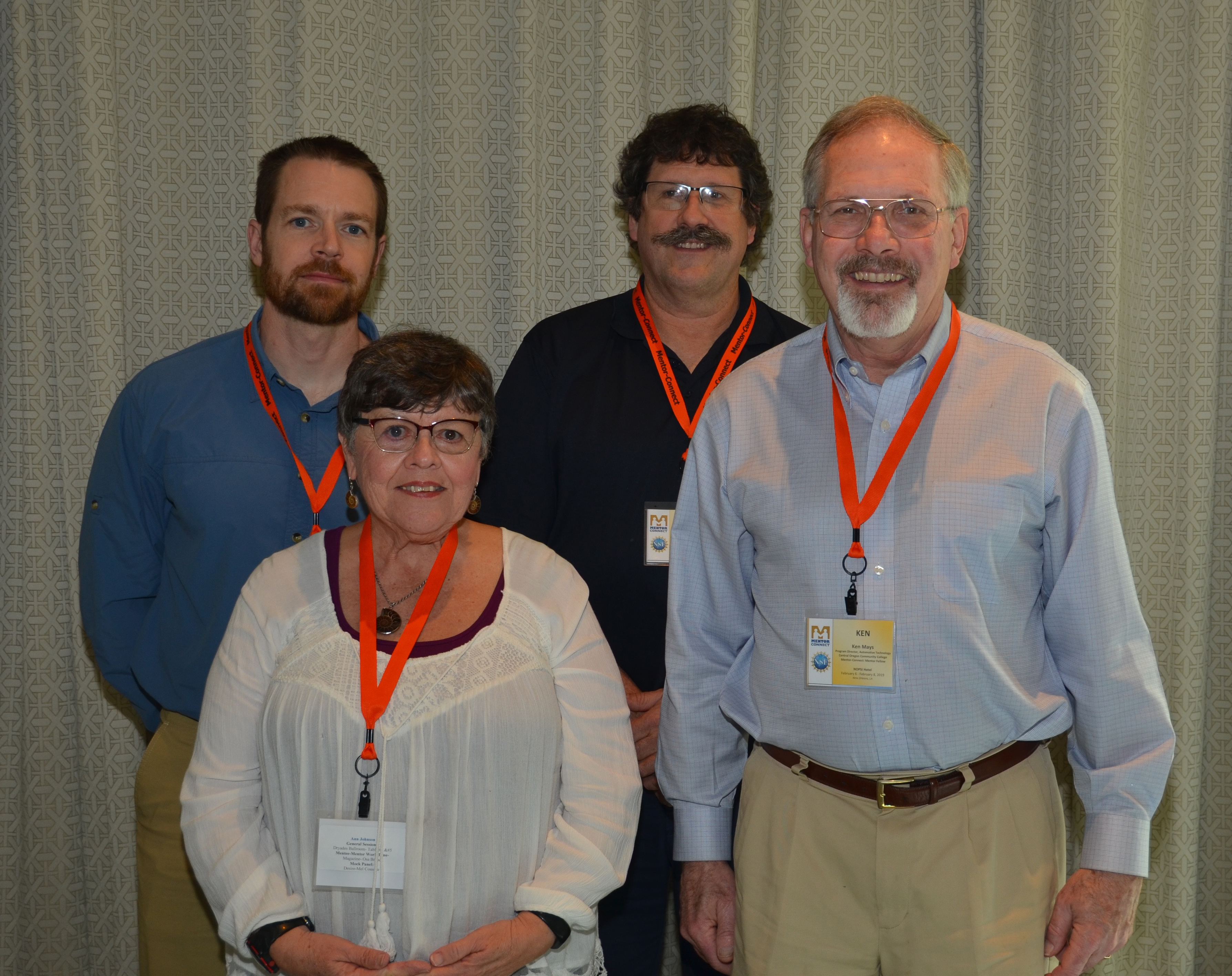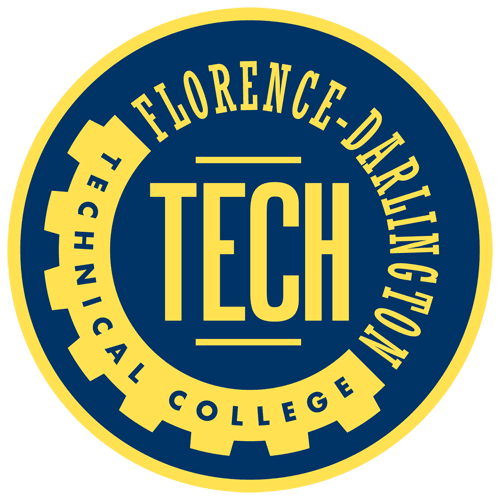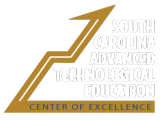Meet the 2019 Mentor Fellows - The Mentor Fellows internship program is an activity of the Mentor-Connect: Leadership Development and Outreach for ATE-2 project (DUE #1501183).
The Mentor Fellows internship program is an activity of the Mentor-Connect: Leadership Development and Outreach for ATE-2 project (DUE #1501183). Internship prepares new mentors to help new-to-ATE college faculty learn to develop competitive ATE grant proposals and grow as leaders. Program also supports a purposeful turnover of mentors over time. Previous mentors transition to become special-purpose Mentors for other aspects of mentoring within the Mentor-Connect project. Mentor Fellows facilitates the involvement of more members of the ATE Community, promotes an infusion of new ideas, and engages new talent for this important work. Those selected as Mentor Fellows have experience working within the NSF ATE community of programs and projects. Internships last approximately one year. Travel expenses and a stipend are paid to those who participate. Fellows commit to mentor shadowing by attending Mentor-Connect’s winter workshop to be held in New Orleans, LA; February 5-8, 2019 and the summer workshop to be held in St. Louis, MO; July 23-25 2019, as well as bi-monthly mentor interviews, technical assistance webinars, and study of Mentor-Connect resources, the NSF ATE proposal solicitation, and components of the PAPPG.
Ann Johnson
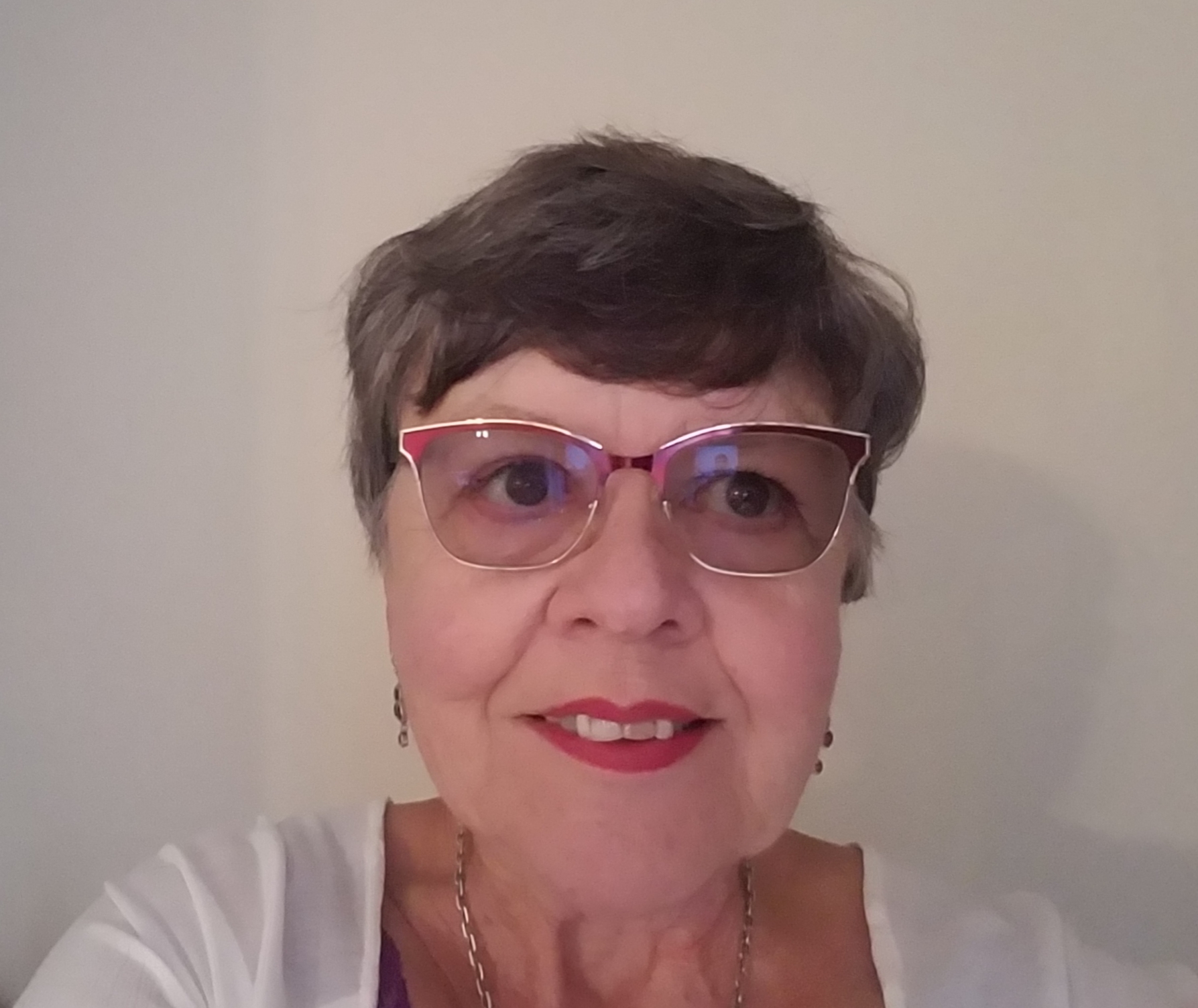 Ms. Ann Johnson is an Associate Director of the National Geospatial Technology Center of Excellence (GeoTech Center). GeoTech is a NSF funded grant hosted at Jefferson Community and Technical College in Louisville, KY. The GeoTech Center supports community college geospatial programs nationally. She is also Co-PI on the iGETT NSF grant to provide faculty education in remote sensing and has also been a co-Principal Investigator on several ATE projects. When asked about her interest in serving as a Mentor Fellow and possibly moving into a Mentor-Connect mentor role and willingness to dedicate time to this work, she responded the “NSF ATE program has provided [her] with the opportunity to work with many faculty and colleges across the nation interested in creating programs for students that help them enter or advance in their careers.” She also noted she attributes much of her career success to beginning her education at a community college and “without that opportunity [she] would not have had the career [she has] enjoyed so much. [She] would like to give back to others by helping them become part of the ATE family.”
Ms. Ann Johnson is an Associate Director of the National Geospatial Technology Center of Excellence (GeoTech Center). GeoTech is a NSF funded grant hosted at Jefferson Community and Technical College in Louisville, KY. The GeoTech Center supports community college geospatial programs nationally. She is also Co-PI on the iGETT NSF grant to provide faculty education in remote sensing and has also been a co-Principal Investigator on several ATE projects. When asked about her interest in serving as a Mentor Fellow and possibly moving into a Mentor-Connect mentor role and willingness to dedicate time to this work, she responded the “NSF ATE program has provided [her] with the opportunity to work with many faculty and colleges across the nation interested in creating programs for students that help them enter or advance in their careers.” She also noted she attributes much of her career success to beginning her education at a community college and “without that opportunity [she] would not have had the career [she has] enjoyed so much. [She] would like to give back to others by helping them become part of the ATE family.”
Director of the National Geospatial Technology Center of Excellence and Professor of Physics, Astronomy, and GIS Vincent A. Dinoto, Jr., GISP recommended Johnson. Dinoto believes Johnson “would make an outstanding mentor for the Mentor Connect program” because she has overseen the development of curriculum (model courses), development of certification exam preparation material, developed the idea of concept modules and created the first five modules, and she has kept the course content tool relevant instrument.” According to DiNoto, Johnson has also presented numerous papers and workshops on geospatial technologies at both regional and national meetings as well as worked with individual colleges in program development and improvement as part of her work with the Geo Tech Center.
CEO & Senior Partner of Rose Group Int’l Dr. Rachel MK Headley, PHP also recommended Johnson on the basis that she has known Johnson for over ten years and has observed Johnson as one who “understands how to work in a team, how to organize goals and objectives into project plans, and then can pull off the work as promised.” Headley also believes Johnson’s “deep experience in leading and participating in grant work sets her up to be an outstanding Mentor Connect mentor.”
Doug Laven
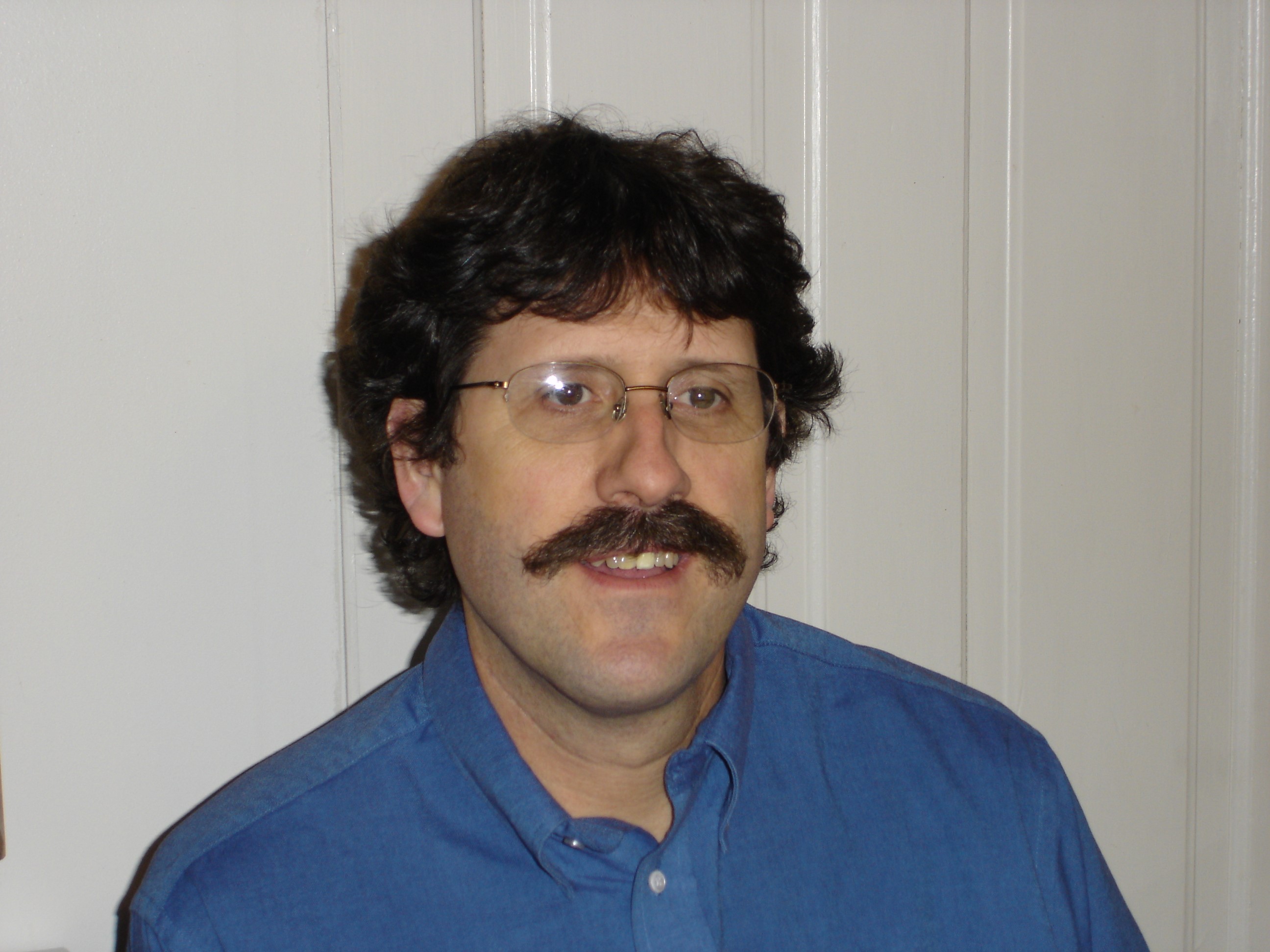 Mr. Doug Laven works for South Central College as the Director of Mechatronics in North Mankato, MN. He has a Master of Business Administration in Technology Management from the University of Phoenix, a Bachelor of Science degree in Open Studies with a Technical Education concentration from Minnesota State University, Mankato, and a 2-Year Certification in Electronics Technology from South Central College. When asked about his interest in serving as a Mentor Fellow and possibly moving into a Mentor-Connect mentor role and willingness to dedicate time to this work, he responded, “primarily because of my teaching career at South Central College, I have a desire to help others succeed by building on their strengths.” He also said, “When I embarked on my first grant, I received assistance from individuals with grant experience and remember their wealth of knowledge that helped me to submit a successful proposal. He stated that he “wanted to share the knowledge gained over the past years with others by assisting them in preparing their first grant proposal.”
Mr. Doug Laven works for South Central College as the Director of Mechatronics in North Mankato, MN. He has a Master of Business Administration in Technology Management from the University of Phoenix, a Bachelor of Science degree in Open Studies with a Technical Education concentration from Minnesota State University, Mankato, and a 2-Year Certification in Electronics Technology from South Central College. When asked about his interest in serving as a Mentor Fellow and possibly moving into a Mentor-Connect mentor role and willingness to dedicate time to this work, he responded, “primarily because of my teaching career at South Central College, I have a desire to help others succeed by building on their strengths.” He also said, “When I embarked on my first grant, I received assistance from individuals with grant experience and remember their wealth of knowledge that helped me to submit a successful proposal. He stated that he “wanted to share the knowledge gained over the past years with others by assisting them in preparing their first grant proposal.”
Mr. Christopher Lewis, Professor and Mechatronics Department Chair at Clark College recommended Laven saying that, “he brings with him knowledge, rapport, congeniality, and leadership, all desirable attributes for the Mentor Fellow opportunity he seeks.” Lewis also noted “he believes there is great potential just waiting to be released!”
Ms. Nancy Louwagie, of Normandale Community College located in Bloomington, MN is the Engineering Technology Programs Chair for the Engineering Technology Programs. She is also the PI for the Distance Education and Learning in Vacuum technology for Employment Readiness (DELIVER) program at Normandale Community College. She recommended Laven because he has “demonstrated his ability to effectively utilize NSF funded resources to create an innovative curriculum which features and emphasizes hands-on learning and pair curriculum delivery with distant learning models.” She goes on to say that “as a result, [Laven] managed the project to a highly successful outcome: the creation of a curriculum in Mechatronics which leads to a credential in Mechatronics Technology that is highly valued by regional employers.” She also noted Laven “combines two elements [she believes] are key for a good mentor: he is gifted in his technical craft AND he is approachable and supportive!”
Program Head of Mechatronics at Virginia Western Community College, Mr. Dan Horine, ME, also recommended Laven saying Laven has “a proven record of mentoring faculty, including [himself] through the [half-day PLC workshops at the HI-TEC Conference]. His ability to reach the faculty is unparalleled.”
Ken Mays
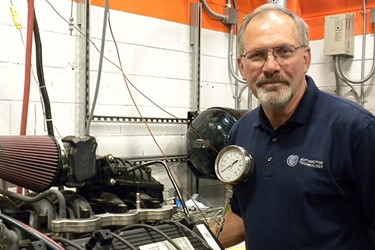 Ken Mays works for Central Oregon Community College as an Automotive Technology Program Director. When asked about his interest in serving as a Mentor Fellow and possibly moving into a Mentor-Connect mentor role and willingness to dedicate time to this work, he responded “Mentor Connect is a solid program that opens opportunities to community colleges. My team has been a recipient of great coaching from the leaders of Mentor Connect. Being the recipient of an NSF Grant was groundbreaking for our community college - not having a grant culture in previous years.” He also noted, “I entered into the process with zero experience or awareness of what an NSF grant could do for our college or region and our team worked with our Mentor for several months, trying to understand how to process a concept and turn it into a full proposal. It worked.” Mays continued that he is still learning as opportunities continue to expand and he “would like to work with new applicants to the NSF community in the future.”
Ken Mays works for Central Oregon Community College as an Automotive Technology Program Director. When asked about his interest in serving as a Mentor Fellow and possibly moving into a Mentor-Connect mentor role and willingness to dedicate time to this work, he responded “Mentor Connect is a solid program that opens opportunities to community colleges. My team has been a recipient of great coaching from the leaders of Mentor Connect. Being the recipient of an NSF Grant was groundbreaking for our community college - not having a grant culture in previous years.” He also noted, “I entered into the process with zero experience or awareness of what an NSF grant could do for our college or region and our team worked with our Mentor for several months, trying to understand how to process a concept and turn it into a full proposal. It worked.” Mays continued that he is still learning as opportunities continue to expand and he “would like to work with new applicants to the NSF community in the future.”
Mary Ann Asson-Batres, PhD Former Rotating Program Director, NSF/BIO/IOS-2012-2015 and current Grants Sub-Contractor for COCC recommended Mays saying, “the most important thing [she] can say about Ken is that he finds time to do what needs to be done to create excellence in everything he is involved in, be that encouraging a woman to find her place in a career in automotive service and technology, developing new curriculum and sharing it with other institutions, working with industry to create and institute new standards for emerging technologies, or spending time with his children when they need him most."
Robert W. Feldmaier, Director for the Center for Advanced Automotive Technology Macomb Community College in Warren, MI, who also recommended Mays said, [Mays] has excellent communication skills that compliment his technical and educator knowledge. He would perform very well as a Mentor-Fellow for Mentor Connect.”
Matthew Swenson
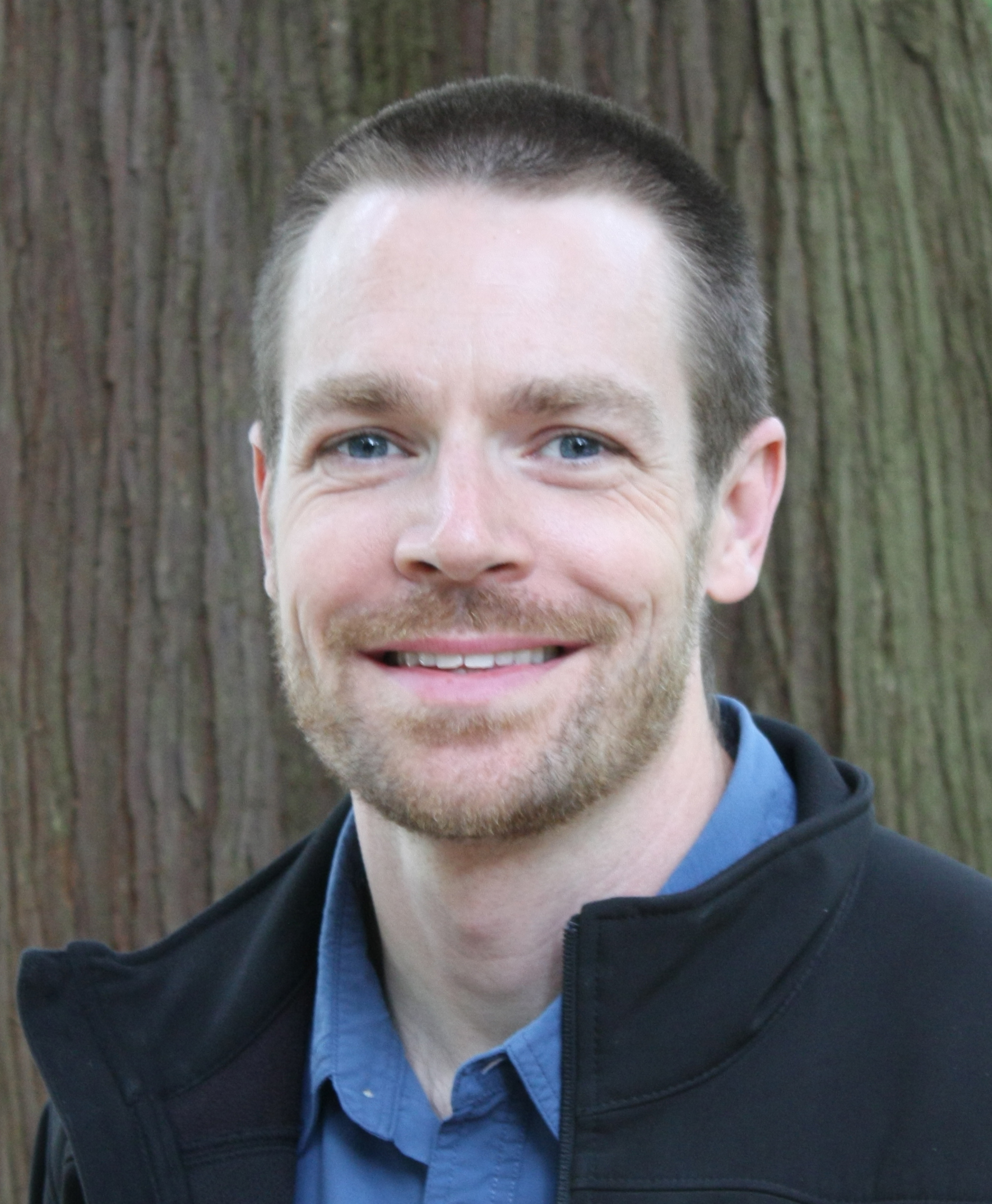 Matt Swenson works as a Grants Director at Green River College in Auburn, WA. Matt has a Master of Business Administration in Not-for-Profit Leadership, a Bachelor of Arts in East Asian Studies, and a Professional certificate in Advanced Fundraising Management. He was highly recommended by five of his colleagues who have worked extensively with him over the years. When asked about his interest in serving as a Mentor Fellow and possibly moving into a Mentor-Connect mentor role and willingness to dedicate time to this work, he responded, “I've significantly contributed to multiple ATE projects over the past five years. I have found myself increasingly being asked for advice on ATE proposals, from my colleagues and from my counterparts at other community and technical colleges. I greatly enjoy supporting their efforts. I believe that being a Mentor will help me to continue this work, and ensure that the advice which I provide is accurate and useful. Last {but not least!), I deeply respect the Mentor Connect program's importance to the ATE community, having participated in several Mentor Connect webinars and used its resources many times.”
Matt Swenson works as a Grants Director at Green River College in Auburn, WA. Matt has a Master of Business Administration in Not-for-Profit Leadership, a Bachelor of Arts in East Asian Studies, and a Professional certificate in Advanced Fundraising Management. He was highly recommended by five of his colleagues who have worked extensively with him over the years. When asked about his interest in serving as a Mentor Fellow and possibly moving into a Mentor-Connect mentor role and willingness to dedicate time to this work, he responded, “I've significantly contributed to multiple ATE projects over the past five years. I have found myself increasingly being asked for advice on ATE proposals, from my colleagues and from my counterparts at other community and technical colleges. I greatly enjoy supporting their efforts. I believe that being a Mentor will help me to continue this work, and ensure that the advice which I provide is accurate and useful. Last {but not least!), I deeply respect the Mentor Connect program's importance to the ATE community, having participated in several Mentor Connect webinars and used its resources many times.”
Kendrick Hang, Information Technology & Computer Science Instructor said, “Matthew's communication skills, follow-through, and organizational skills are best-in-class as proposals require assembling a team of people across campus, and the proposal development effort is often deadline driven.” Hang also noted that Swenson “has been a critical team member in the development of both NSF ATE projects that [they] have been involved in (EXCEL-IT and AppConnectNW.)
Mel Cossette, Executive Director and Principal Investigator of the National Resource Center for Materials Technology Education in Lynnwood, WA said, “Matthew has accumulated a wealth of knowledge and experience that will be invaluable to mentees including: grant writing requirements, budgeting, working with an evaluator and navigating the ATE community.” Cossette also noted, “His guidance and assistance is sought after, not only by colleges in Washington State, but also on a national level.”
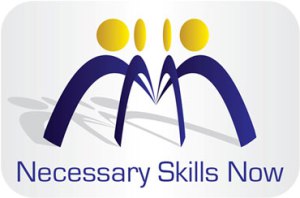

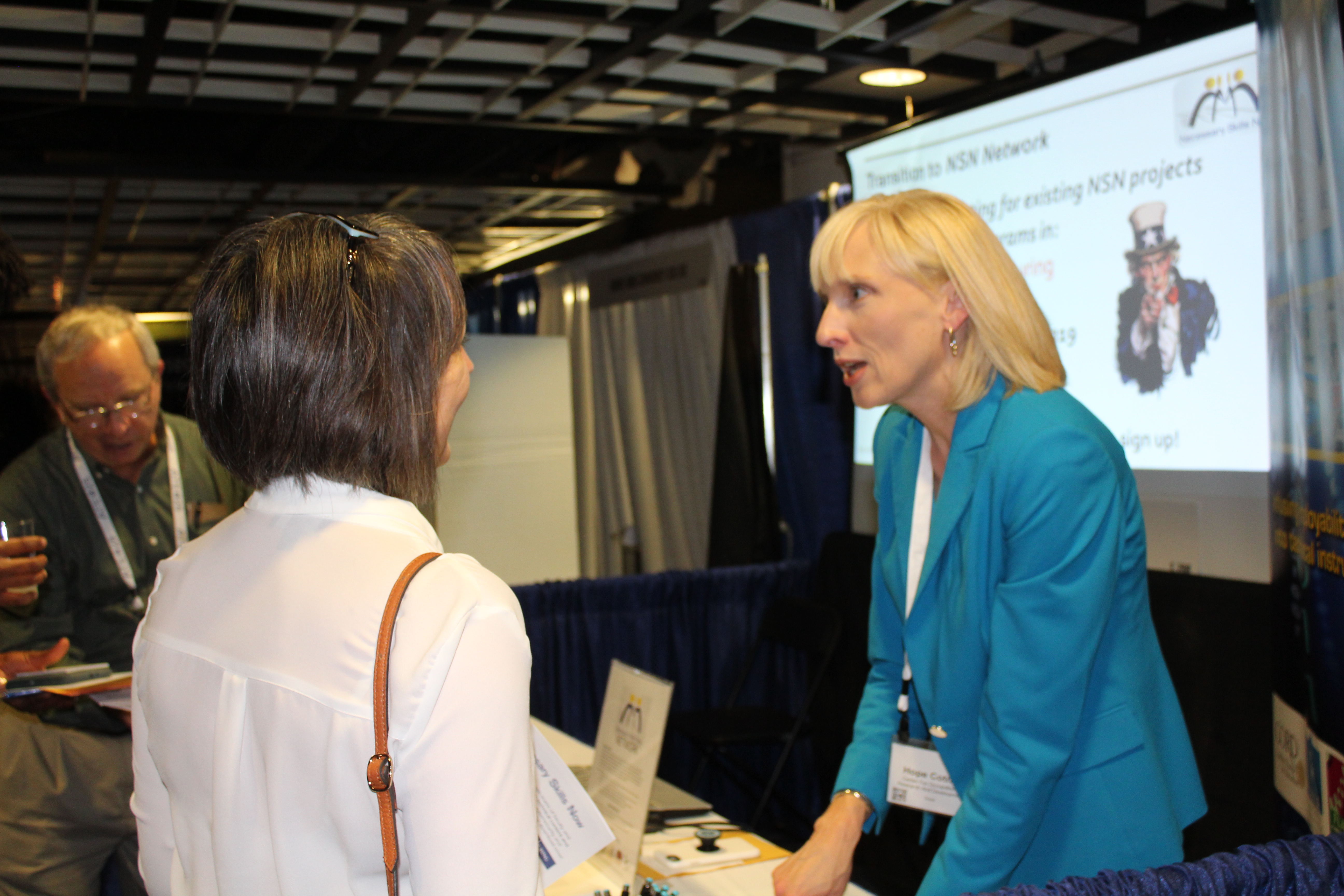
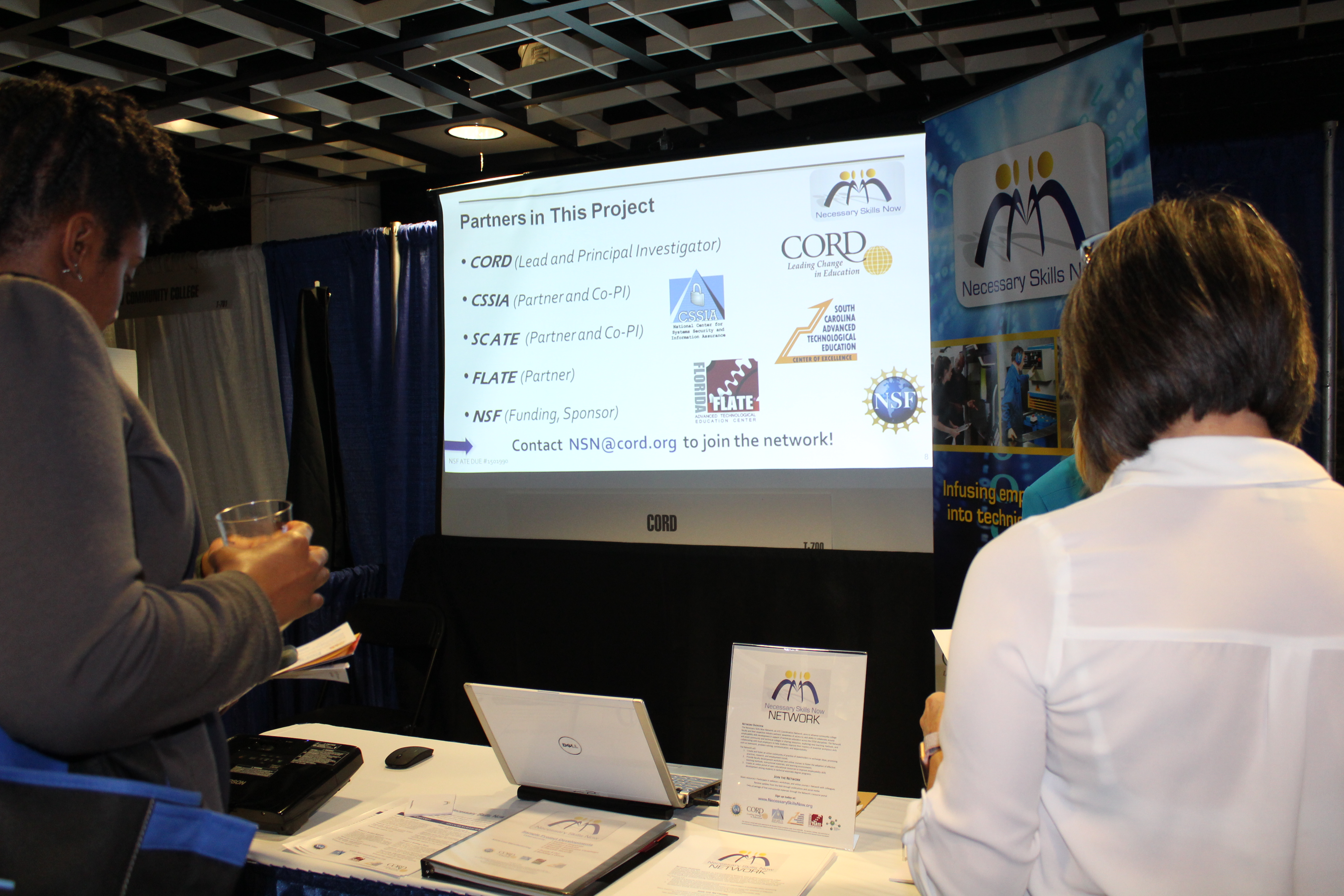 The SCATE Center will serve as liaison to other
The SCATE Center will serve as liaison to other 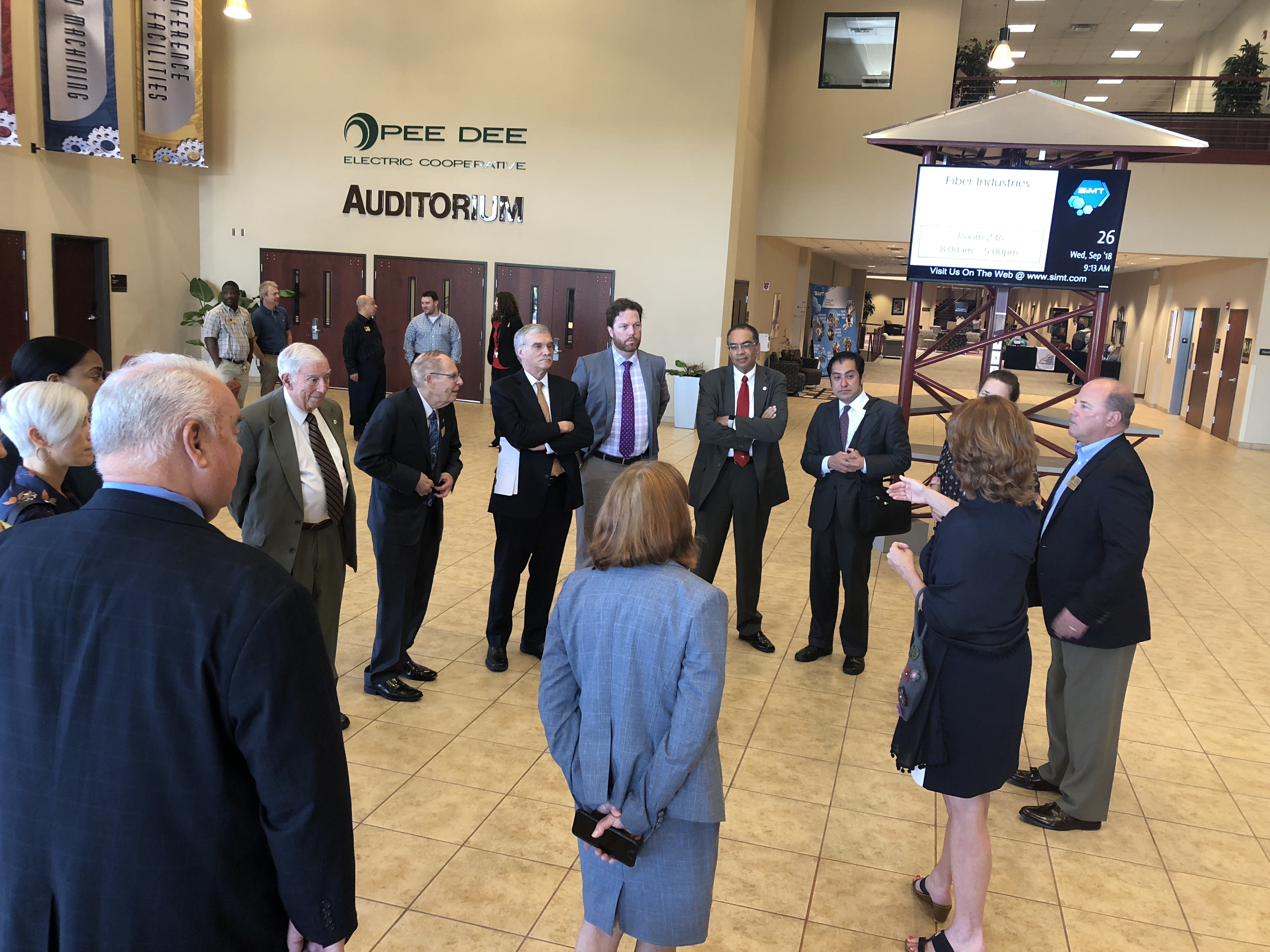 On Wednesday, September 26th , members from the
On Wednesday, September 26th , members from the 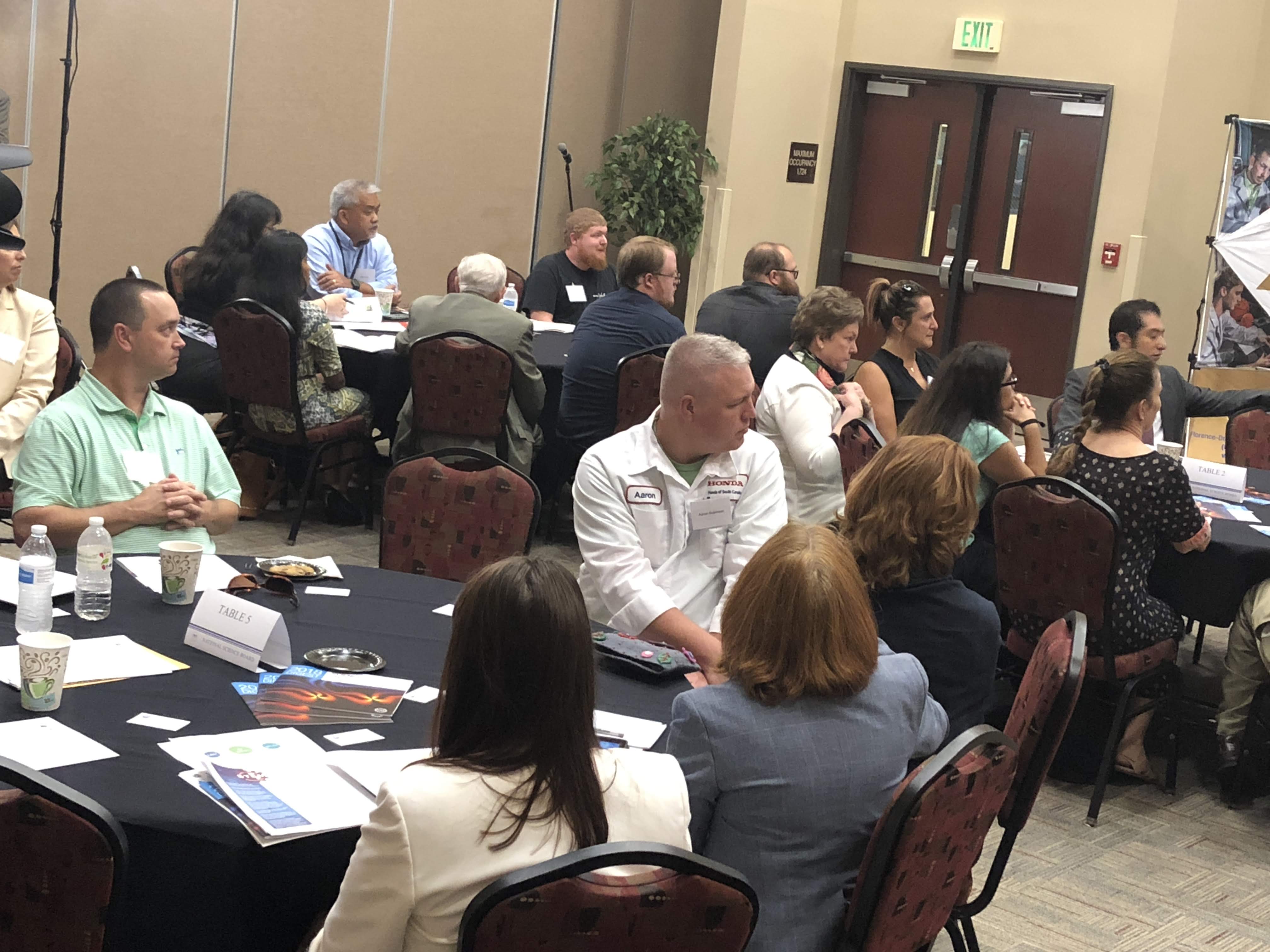 Members of the NSB conducted the listening session to gain insights and perceptions around the following areas: 1) The stigma and lack of awareness that currently exists around community colleges and technical training. 2) The skills gap of students. 3) Human resource practices that often exclude qualified skilled workers. 4) The socio-economic barriers that many community college students still face. 5) The lack of racial and gender diversity that is also common in technical fields.
Members of the NSB conducted the listening session to gain insights and perceptions around the following areas: 1) The stigma and lack of awareness that currently exists around community colleges and technical training. 2) The skills gap of students. 3) Human resource practices that often exclude qualified skilled workers. 4) The socio-economic barriers that many community college students still face. 5) The lack of racial and gender diversity that is also common in technical fields. 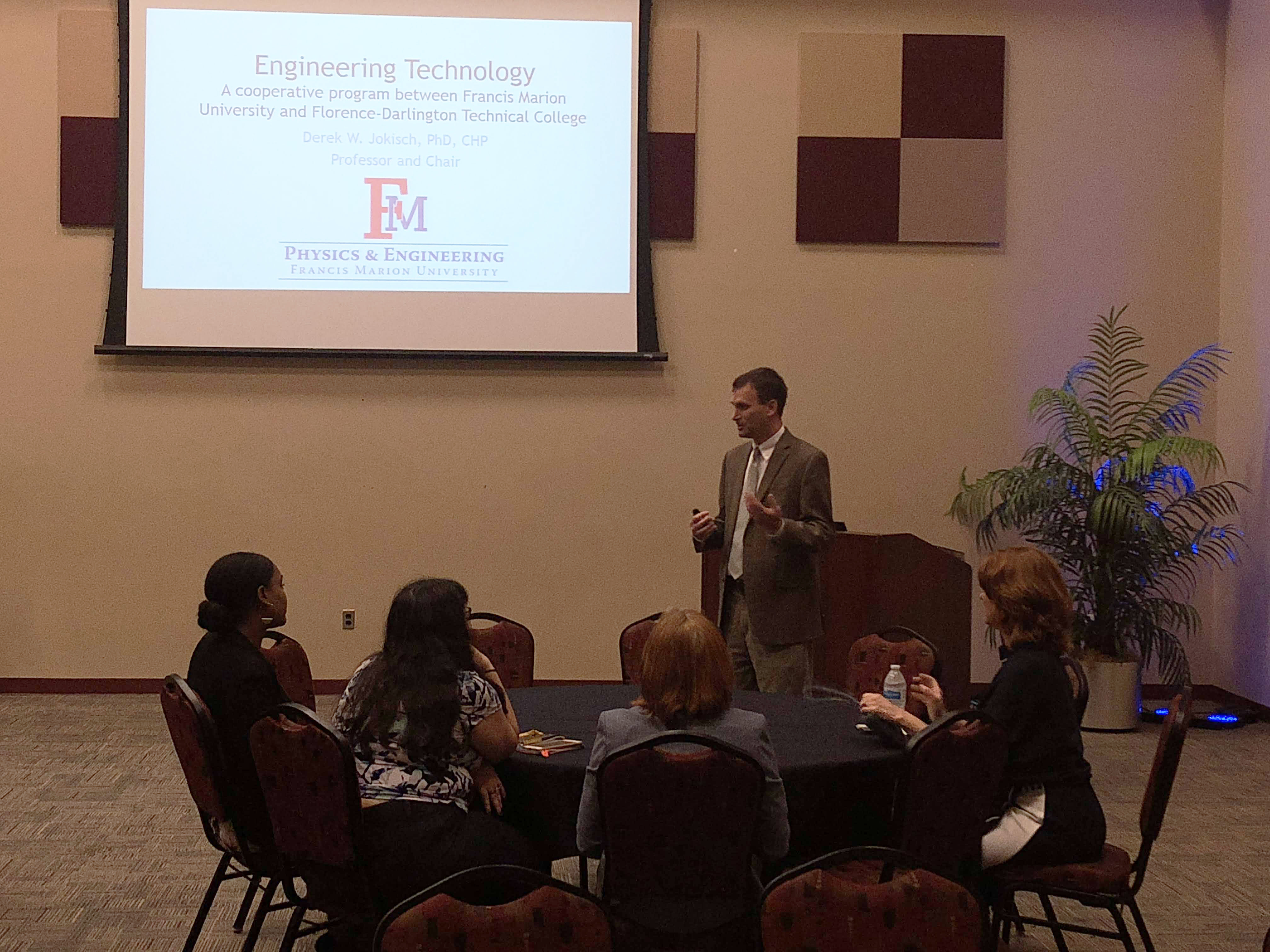
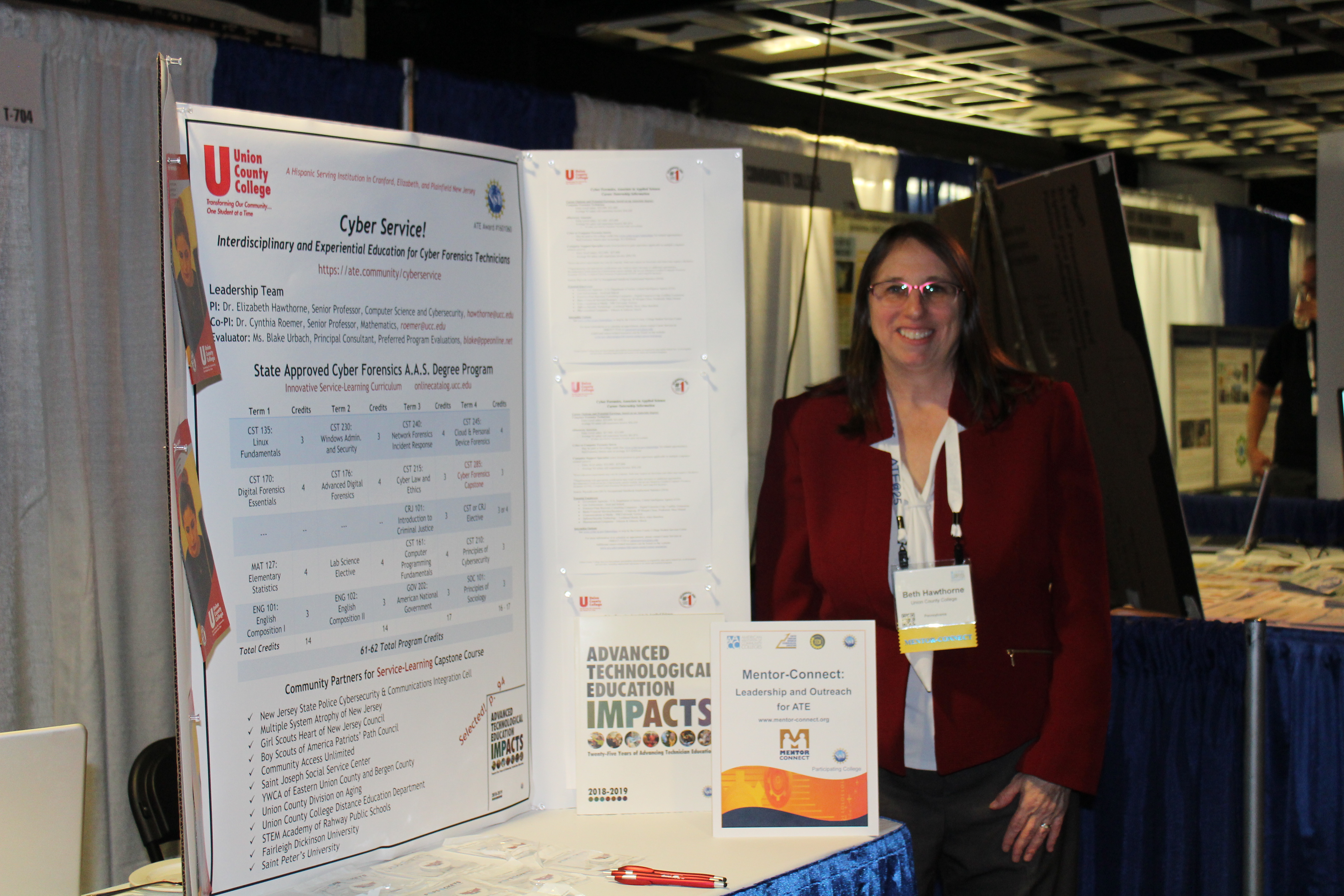 Prior to being selected for Mentor-Connect, Hawthorn explained that she and colleagues at Union College had tried for two years to obtain an ATE grant. “We failed miserably,” she said during the Thought Leaders’ Summit session that was also attended by MentorLinks participants prior to the 2018 ATE Principal Investigators Conference.
Prior to being selected for Mentor-Connect, Hawthorn explained that she and colleagues at Union College had tried for two years to obtain an ATE grant. “We failed miserably,” she said during the Thought Leaders’ Summit session that was also attended by MentorLinks participants prior to the 2018 ATE Principal Investigators Conference.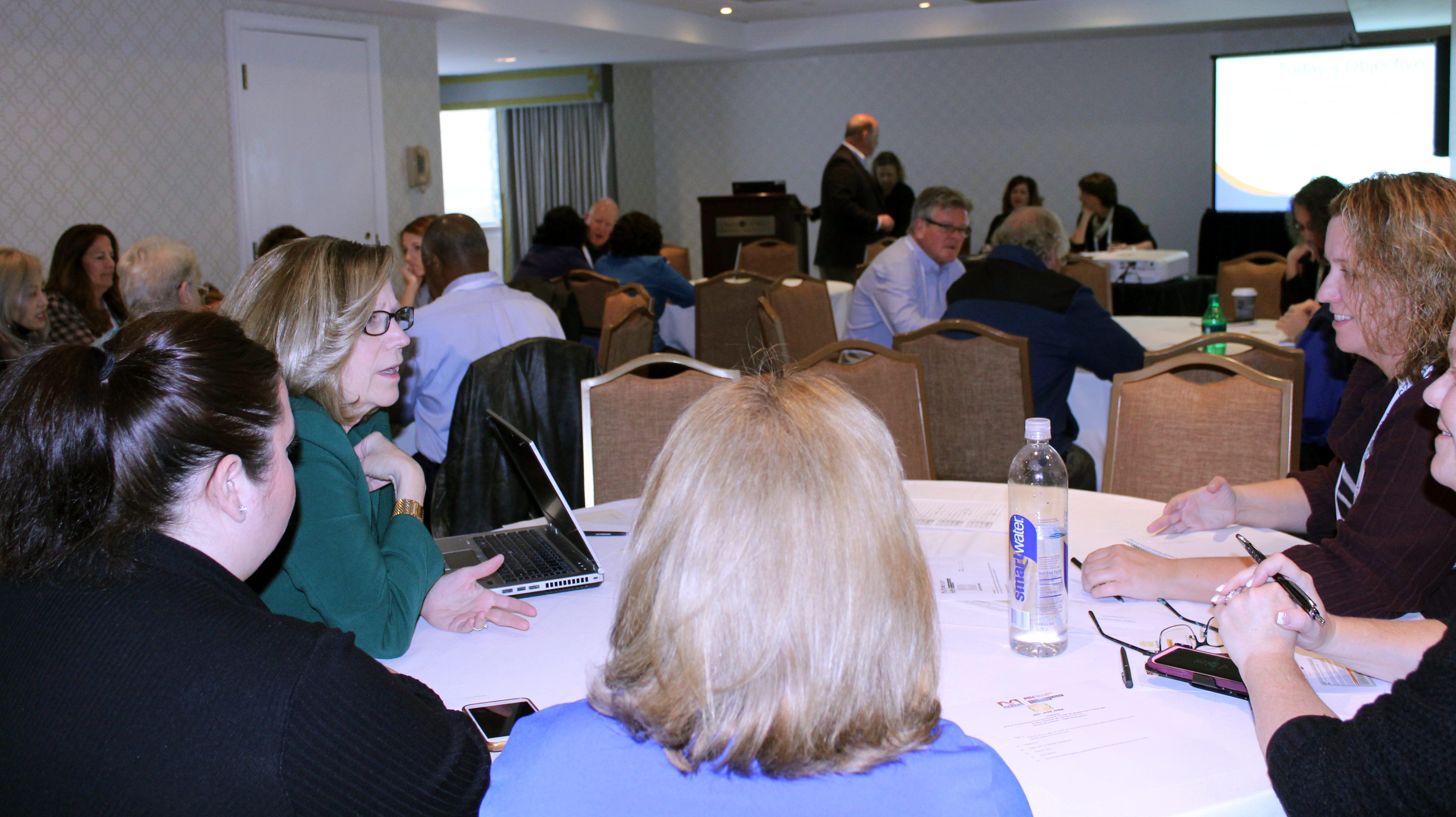
 Ms. Ann Johnson is an Associate Director of the National Geospatial Technology Center of Excellence (GeoTech Center). GeoTech is a NSF funded grant hosted at Jefferson Community and Technical College in Louisville, KY. The GeoTech Center supports community college geospatial programs nationally. She is also Co-PI on the iGETT NSF grant to provide faculty education in remote sensing and has also been a co-Principal Investigator on several ATE projects. When asked about her interest in serving as a Mentor Fellow and possibly moving into a Mentor-Connect mentor role and willingness to dedicate time to this work, she responded the “NSF ATE program has provided [her] with the opportunity to work with many faculty and colleges across the nation interested in creating programs for students that help them enter or advance in their careers.” She also noted she attributes much of her career success to beginning her education at a community college and “without that opportunity [she] would not have had the career [she has] enjoyed so much. [She] would like to give back to others by helping them become part of the ATE family.”
Ms. Ann Johnson is an Associate Director of the National Geospatial Technology Center of Excellence (GeoTech Center). GeoTech is a NSF funded grant hosted at Jefferson Community and Technical College in Louisville, KY. The GeoTech Center supports community college geospatial programs nationally. She is also Co-PI on the iGETT NSF grant to provide faculty education in remote sensing and has also been a co-Principal Investigator on several ATE projects. When asked about her interest in serving as a Mentor Fellow and possibly moving into a Mentor-Connect mentor role and willingness to dedicate time to this work, she responded the “NSF ATE program has provided [her] with the opportunity to work with many faculty and colleges across the nation interested in creating programs for students that help them enter or advance in their careers.” She also noted she attributes much of her career success to beginning her education at a community college and “without that opportunity [she] would not have had the career [she has] enjoyed so much. [She] would like to give back to others by helping them become part of the ATE family.” Mr. Doug Laven works for South Central College as the Director of Mechatronics in North Mankato, MN. He has a Master of Business Administration in Technology Management from the University of Phoenix, a Bachelor of Science degree in Open Studies with a Technical Education concentration from Minnesota State University, Mankato, and a 2-Year Certification in Electronics Technology from South Central College. When asked about his interest in serving as a Mentor Fellow and possibly moving into a Mentor-Connect mentor role and willingness to dedicate time to this work, he responded, “primarily because of my teaching career at South Central College, I have a desire to help others succeed by building on their strengths.” He also said, “When I embarked on my first grant, I received assistance from individuals with grant experience and remember their wealth of knowledge that helped me to submit a successful proposal. He stated that he “wanted to share the knowledge gained over the past years with others by assisting them in preparing their first grant proposal.”
Mr. Doug Laven works for South Central College as the Director of Mechatronics in North Mankato, MN. He has a Master of Business Administration in Technology Management from the University of Phoenix, a Bachelor of Science degree in Open Studies with a Technical Education concentration from Minnesota State University, Mankato, and a 2-Year Certification in Electronics Technology from South Central College. When asked about his interest in serving as a Mentor Fellow and possibly moving into a Mentor-Connect mentor role and willingness to dedicate time to this work, he responded, “primarily because of my teaching career at South Central College, I have a desire to help others succeed by building on their strengths.” He also said, “When I embarked on my first grant, I received assistance from individuals with grant experience and remember their wealth of knowledge that helped me to submit a successful proposal. He stated that he “wanted to share the knowledge gained over the past years with others by assisting them in preparing their first grant proposal.” Ken Mays works for Central Oregon Community College as an Automotive Technology Program Director. When asked about his interest in serving as a Mentor Fellow and possibly moving into a Mentor-Connect mentor role and willingness to dedicate time to this work, he responded “Mentor Connect is a solid program that opens opportunities to community colleges. My team has been a recipient of great coaching from the leaders of Mentor Connect. Being the recipient of an NSF Grant was groundbreaking for our community college - not having a grant culture in previous years.” He also noted, “I entered into the process with zero experience or awareness of what an NSF grant could do for our college or region and our team worked with our Mentor for several months, trying to understand how to process a concept and turn it into a full proposal. It worked.” Mays continued that he is still learning as opportunities continue to expand and he “would like to work with new applicants to the NSF community in the future.”
Ken Mays works for Central Oregon Community College as an Automotive Technology Program Director. When asked about his interest in serving as a Mentor Fellow and possibly moving into a Mentor-Connect mentor role and willingness to dedicate time to this work, he responded “Mentor Connect is a solid program that opens opportunities to community colleges. My team has been a recipient of great coaching from the leaders of Mentor Connect. Being the recipient of an NSF Grant was groundbreaking for our community college - not having a grant culture in previous years.” He also noted, “I entered into the process with zero experience or awareness of what an NSF grant could do for our college or region and our team worked with our Mentor for several months, trying to understand how to process a concept and turn it into a full proposal. It worked.” Mays continued that he is still learning as opportunities continue to expand and he “would like to work with new applicants to the NSF community in the future.” Matt Swenson works as a Grants Director at Green River College in Auburn, WA. Matt has a Master of Business Administration in Not-for-Profit Leadership, a Bachelor of Arts in East Asian Studies, and a Professional certificate in Advanced Fundraising Management. He was highly recommended by five of his colleagues who have worked extensively with him over the years. When asked about his interest in serving as a Mentor Fellow and possibly moving into a Mentor-Connect mentor role and willingness to dedicate time to this work, he responded, “I've significantly contributed to multiple ATE projects over the past five years. I have found myself increasingly being asked for advice on ATE proposals, from my colleagues and from my counterparts at other community and technical colleges. I greatly enjoy supporting their efforts. I believe that being a Mentor will help me to continue this work, and ensure that the advice which I provide is accurate and useful. Last {but not least!), I deeply respect the Mentor Connect program's importance to the ATE community, having participated in several Mentor Connect webinars and used its resources many times.”
Matt Swenson works as a Grants Director at Green River College in Auburn, WA. Matt has a Master of Business Administration in Not-for-Profit Leadership, a Bachelor of Arts in East Asian Studies, and a Professional certificate in Advanced Fundraising Management. He was highly recommended by five of his colleagues who have worked extensively with him over the years. When asked about his interest in serving as a Mentor Fellow and possibly moving into a Mentor-Connect mentor role and willingness to dedicate time to this work, he responded, “I've significantly contributed to multiple ATE projects over the past five years. I have found myself increasingly being asked for advice on ATE proposals, from my colleagues and from my counterparts at other community and technical colleges. I greatly enjoy supporting their efforts. I believe that being a Mentor will help me to continue this work, and ensure that the advice which I provide is accurate and useful. Last {but not least!), I deeply respect the Mentor Connect program's importance to the ATE community, having participated in several Mentor Connect webinars and used its resources many times.”